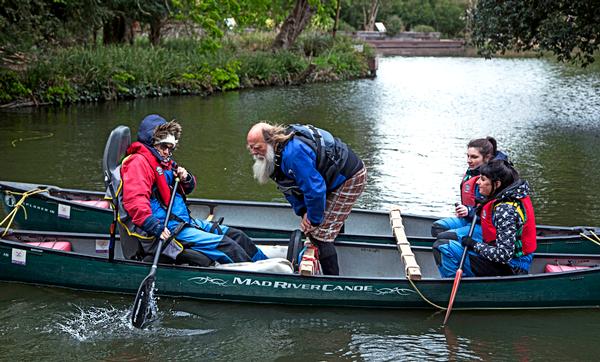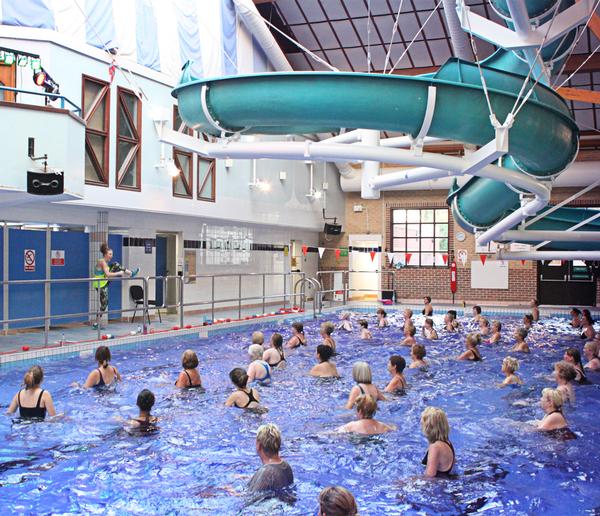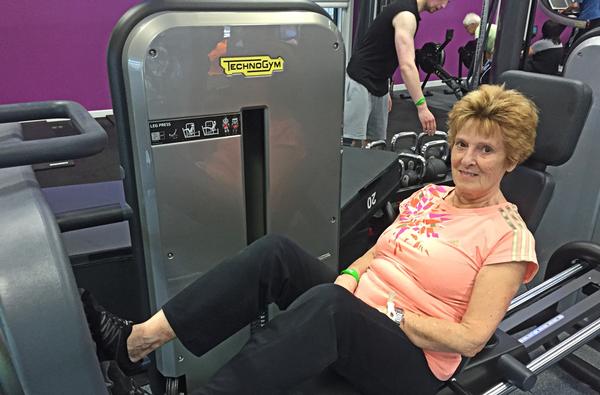| sport park leisure features |
|
|
 |
 |
 |
|
Leisure Management - Show me the money

Funding

|
|
| Show me the money
|

Activity providers are missing out on funding because they don’t know how to demonstrate the value of their services. Abigail Harris reports
|
|
The need for leisure operators to attract external funding has never been clearer, with councils warning the cut to the Local Government Association’s public health budget – from £3.38bn to £3.13bn between 2016/17 and 2020/21 – could hamper efforts to tackle obesity. But according to research by Leisure-net Solutions, providers are missing out on funding opportunities because they don’t understand how to demonstrate the strategic impact of their services. For the last 10 years, Leisure-net has been surveying local authorities to rate the efficiency and effectiveness of their leisure management partners – covering all aspects from service delivery and communication to strategic issues such as unemployment and childhood obesity, as well as a Net Promoter Score (NPS). The research highlights that the focus among these providers is primarily on service delivery for those already using the facilities, with little conversation around the strategic needs of the wider community and how these can be delivered against. “Qualitative discussions around outcomes and impacts suggest many local authorities and their management partners don’t truly understand the issues involved,” says David Albutt, associate director of consulting for Leisure-net. “For the physical activity sector, the benefits of working with GP surgeries and hospital departments should be self-evident, but even here not enough work is currently being done. “This is despite the fact that external funding is absolutely available if local needs are properly met. “Both leisure operators and their local authority counterparts need to understand local requirements so they can demonstrate to commissioners and grant issuers – such as health, education, police and employers – how the service they provide can contribute.” But some leisure providers have been able to successfully tap into new funding streams. We talk to a selection of those who have secured extra cash to launch innovative projects…
|
|

|
Beyond the funding…

Operator: Active Nation
Project: ActiveAbility

Leisure trust Active Nation has been running ActiveAbility Southampton since October 2014, making sports and exercise accessible to disabled adults (14 years+) within Southampton and its surrounding areas.
The three-year programme received £212,000 from Sport England’s Inclusive Sport Fund, for adaptive equipment and specialist training for key staff and volunteers. The trust has focused on sports not usually broadly accessible, and has created a disability sports forum for the city with key partners who helped develop the programme and spread the message.
A bursary scheme to support people and organisations to get physically active – with grants of up to £50 to purchase equipment, trainers, help with transport, gym memberships and activities – has also helped remove potential financial barriers.
The heavily subsidised weekly activity programme changes every eight weeks and includes sailing, skiing, kayaking, swimming, badminton, cricket, rugby, Fit ’n’ Fun and FitSteps at partner facilities and Active Nation venues.
“As the project has grown, we’ve introduced an outreach programme to bring the fun and action to schools, community rooms, churches and other venues, breaking down even more barriers,” says Stuart Martin, managing director of Active Nation.
“In year one, we surpassed our 2,648 target with 4,059 attendances, and during year two we’ve already hit 10,000 – way over our Sport England target of 5,612 – with 1,002 participants registered. Feedback questionnaires help guide continual improvements and make the programme accessible to as many people as possible.”
To ensure ActiveAbility can be sustained beyond three years, Active Nation has created a volunteering scheme in partnership with JoinIn.org.uk, Southampton Voluntary Services and the Southampton sports development team, supported with ‘in kind’ funding from the trust, Active Southampton and Way Ahead Day Services.
Peter Hull MBE, the Paralympian triple gold medallist, has joined Active Nation as project assistant for ActiveAbility, recruiting participants and new supporting organisations, as well as shaping exit routes for participants to maintain their healthy lifestyles.
| |


|

ActiveAbility’s subsidised offers include water-based activities |
|

|
Glue of the community…

Operator: Valley Leisure
Project: Move More with Zumba Fitness

One of Valley Leisure’s externally-funded initiatives is Move More with Zumba Fitness, which secured £40,113 from sporta’s Sport England-funded Make your Move programme, as well as £6,000 from Sport Hampshire Isle of Wight and £43,000 in-kind and cash from Zumba Fitness.
The 12-month project aims to engage 440 inactive, predominantly female local residents in a fun, inspiring and progressive programme of Zumba Fitness classes. Its goal is for a total footfall of 9,210 and a retention rate of 60 per cent six months post-programme.
The 10 on-site Zumba Fitness classes and six community outreach classes attracted over 330 participants between January to July 2016, with a 6,500+ footfall – equating to almost once a week per participant.
“We use Sport England’s quality scheme, Quest, to provide a framework to measure our current performance and help us enhance, develop and evolve to meet the needs of residents,” says Valley Leisure CEO Kevin Paterson. “Move More with Zumba Fitness was included in our recent Quest assessments as part of the Community Outcomes Module and, despite its infancy, was viewed very favourably, particularly the planning.
“We’ve combined the core national, regional and local demographic, sporting and health data into one document relevant to the local area – including strategic and market segmentation data from Sport England, the Sport Hampshire Isle of Wight Strategy, the Test Valley Health Profile data and the Test Valley Joint Strategic Needs Assessment data.
“We also engaged with potential customers to shape the content and delivery to meet the needs and aspirations of the target market we identified: inactive 50- to 70-year-old ladies.
“Valley Leisure considers itself to be the ‘glue of the community’, supporting the people who are already active as well as encouraging and enabling non-traditional leisure centre users to become more physically active,” Paterson concludes.
“We aim to positively influence and improve physical, mental and social health and wellbeing, proactively engaging local organisations to help increase our reach in the local community.”
| |


|

Valley Leisure has targeted inactive 50- to 70 year-olds |
|

|
Reaching out…

Operator: Oldham Community Leisure (OCL)
Project: REACH

OCL has been running its REACH (Referrals Encouraging Activity, Confidence and Health) exercise referral scheme for eight years.
The cardiac-specific programme receives £45,000 a year from Oldham Clinical Commissioning Group. It accepts Coronary Heart Disease (CHD) and Chronic Obstructive Pulmonary Disease (COPD) patients classified as fit to exercise, and these individuals pay a subsidised, nominal fee to access rehabilitation classes.
Delivering 18 classes a week – including six extra sessions subsidised by OCL – with a limit of 15 people per class, the scheme saw an 82 per cent uptake in 2015-16, equating to 262 referrals and 10,409 attendances.
The impact has been impressive, with 96 per cent of participants saying they’re now happy, compared to just 45 per cent previously, and 95 per cent reporting more confidence. Ninety-one per cent say they have more control over their health, and 75 per cent say they go out more now. The 56 people completing the survey also reported that collective GP visits had reduced from 227 times to just 163 throughout the year.
With many regular participants, OCL has also developed new pathways to encourage use of other OCL facilities. Jackie Hanley, OCL’s senior health and physical activity development officer, says: “With the scheme growing year-on-year, we expanded the number of maintenance classes, but still patients were struggling to get into REACH sessions. So instructors now encourage participants to try more mainstream activities instead of being dependent on specialised classes.”
REACH has secured the same levels of funding since the project started in 2008. While OCL has to reapply for a further grant each year, the scheme has a long history as a trusted, reliable service and has good links with the Royal Oldham Hospital, Pennine Lung Services, local GP practices and voluntary organisations.
Crucially, the initiative also supports the Oldham Joint Strategic Needs Assessment and the town’s Health and Wellbeing Strategy by providing professional support for patients, ultimately helping optimise their health.
| |


|

REACH participants often move on to mainstream gyms |
|

|
Chain reaction…

Operator: BH Live
Project: CHAIN

Cycling Against Hip Pain (CHAIN) was conceived as a six-week exercise and education programme for people with hip arthritis. It was developed by consultant orthopaedic surgeon Robert Middleton and physiotherapist Tom Wainwright as an effective way to implement NICE guidelines, which suggest non-invasive treatments – including education and exercise – be tried before surgery is considered.
Funded, developed, delivered and governed by a consortium of organisations – BH Live, Royal Bournemouth and Christchurch Hospitals NHS Foundation Trust (RBCHFT), Dorset Clinical Commissioning Group, Active Dorset, Bournemouth Borough Council and Christchurch Council, Bournemouth University and local GP Practices – the programme ran from October 2013 to April 2015 and was a finalist in the 2014 Flame Awards’ Healthy Partnership Project category.
Each week, groups of up to 15 people attended a 30-minute education session with a physiotherapist, followed by 30 minutes’ exercise on static bikes at Littledown and Pelhams Park Leisure Centre, operated by BH Live. Participants were given a home programme, encouraged to cycle and, on completion, asked to keep a diary to track long-term impact.
Of the 119 people referred to CHAIN, 96 completed it and post-programme assessment showed a remarkable improvement, with many reporting improved flexibility, less pain, less dependence on analgesics, improved sleep, feeling fitter and stronger, and being better able to carry out daily activities. They grew in confidence, made important lifestyle changes and learned how to make exercise an enjoyable habit.
The case study of a 71-year-old CHAIN participant with complex medical conditions featured in the British Medical Journal after he reported an “amazing difference” in the strength and use of his right leg, and his fitness. Six weeks post-programme, he could turn in bed, cycle for 15 minutes a day and walk his dogs.
| |


|
| shutterstock |

Participants are better able to carry out daily activities |
|
 |
| Originally published in Health Club Management 2016 issue 10
|
|
 |
|
 |
| Digital magazine |
 |
|
|
|
|
|
|
| | | |